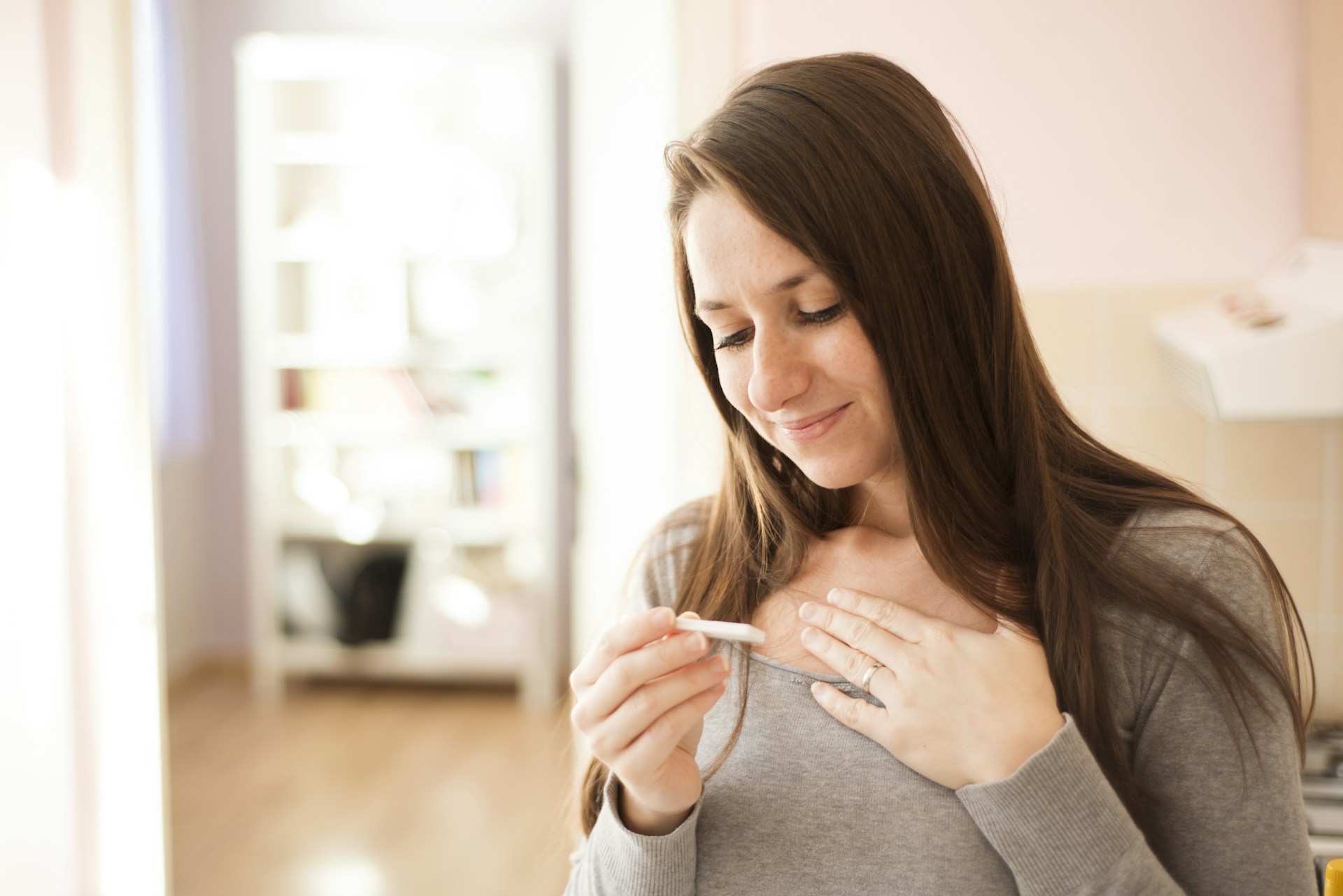Gaining insight into what is actually going on inside your body can help you find a strategy to manage your PCOS that works for you. Learn how the Oova kit can help you get those insights.

Gaining insight into what is actually going on inside your body can help you find a strategy to manage your PCOS that works for you. Learn how the Oova kit can help you get those insights.
PCOS Awareness Month is a nationally recognized event dedicated to spreading awareness about what people living with polycystic ovarian syndrome (PCOS) experience every day. Organizations across the country share resources, host events, and raise money for research on PCOS treatments. PCOS Awareness Month takes place in September.
What it is Why we celebrate PCOS and fertility Takeaway
What is PCOS?
While PCOS is among the most common causes of infertility in women, it is still widely under-diagnosed and misunderstood. The CDC estimates that as many as 5 million reproductive age women in the U.S. live with PCOS.
PCOS can impact women well beyond their reproductive years and can contribute to multiple other health concerns, including type 2 diabetes, heart disease, and high blood pressure.
Women with PCOS have high levels of androgens which are sex hormones that male bodies typically produce more of. Higher levels of androgens can prevent ovulation, cause irregular menstrual cycles, and excess growth of body and facial hair. Some women deal with symptoms of PCOS every day while others may experience less obvious or persistent symptoms.
Why is PCOS Awareness Month celebrated?
If you live with PCOS, you may feel like the last thing you need is to be made “aware” of PCOS. Chances are you are looking for more than “awareness”. You may be looking for actionable advice, empathetic support, or just straightforward, reliable information. Maybe this month, instead of focusing on external awareness for PCOS, take some time to look inwards. Start by asking yourself a few questions:
- What does awareness look like for you?
- How can you better understand your PCOS and how it impacts your body?
- What are the resources you need to take action and manage your health with PCOS?
PCOS and fertility
Some women are diagnosed with PCOS long before they are trying to conceive but many women first learn they have PCOS after having trouble getting pregnant.
PCOS can make it more difficult for women to conceive naturally, but many women still do. For women with PCOS, regardless of whether they are trying to conceive, having a better understanding of how PCOS impacts their cycles can make a huge difference in managing PCOS.
Trying to conceive with PCOS
Hormone imbalances caused by PCOS can impact fertility and ovulation. Many women with PCOS have hormone baselines that just don’t match up with what is considered “normal”. Because of this, it can feel near impossible for women who are trying to conceive to figure out when they are most fertile and even if they have ovulated each cycle. To make matters even more complicated, women with PCOS often have luteinizing hormone (LH) levels that are higher than those of women who don’t have PCOS. This can cause false positive results on OTC ovulation tests.
Pregnancy cannot occur without ovulation. Knowing if and when you ovulate is key if you are trying to conceive with PCOS.
>>MORE: How Can I Tell If I'm Ovulating? How to Find and Test Your Fertile Window
If you feel like your hormone cycle is a complete mystery, you are not alone. It can feel frustrating trying to understand your cycle when you live with PCOS. It can like every month you are just going off your “best guess.”
Tracking hormone levels with Oova
Oova helps women with PCOS learn what their unique hormone baselines are. Unlike other ovulation tracking products, Oova doesn’t base your hormone profile on what is “standard” or “normal”. The test uses machine learning to hone in on exactly when you are most fertile and confirms if ovulation has occurred based on your own progesterone and LH levels.
Oova provides invaluable information that is otherwise unattainable for most people with PCOS without frequent blood tests or visits to your doctor.
Takeaway: Awareness is the first step towards action
While PCOS cannot be cured, there are many ways that the condition can be managed. Some women are able to manage their PCOS symptoms with diet changes and exercise. Others may turn to medication to help reduce symptoms or help them conceive.
No two people with PCOS will have identical experiences. Whether you are trying to conceive, trying to mitigate your symptoms, or just wrapping your head around a new diagnosis of PCOS, knowledge can be power.
Developing a better understanding of what is going on within your body can help you find a strategy to manage your PCOS that works for you.
About the author

Sources
About the Oova Blog:
Our content is developed with a commitment to high editorial standards and reliability. We prioritize referencing reputable sources and sharing where our insights come from. The Oova Blog is intended for informational purposes only and is never a substitute for professional medical advice. Always consult a healthcare provider before making any health decisions.



